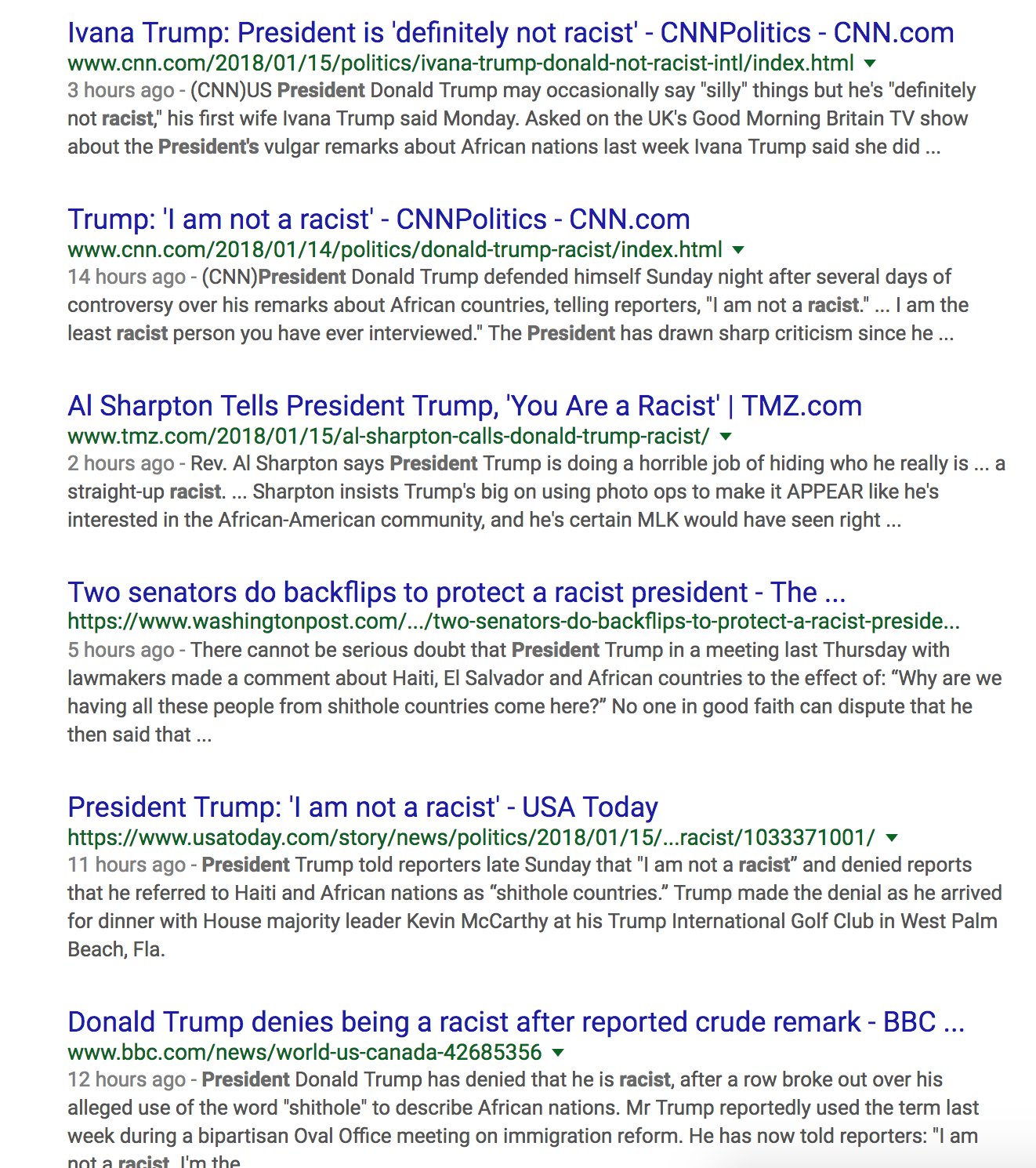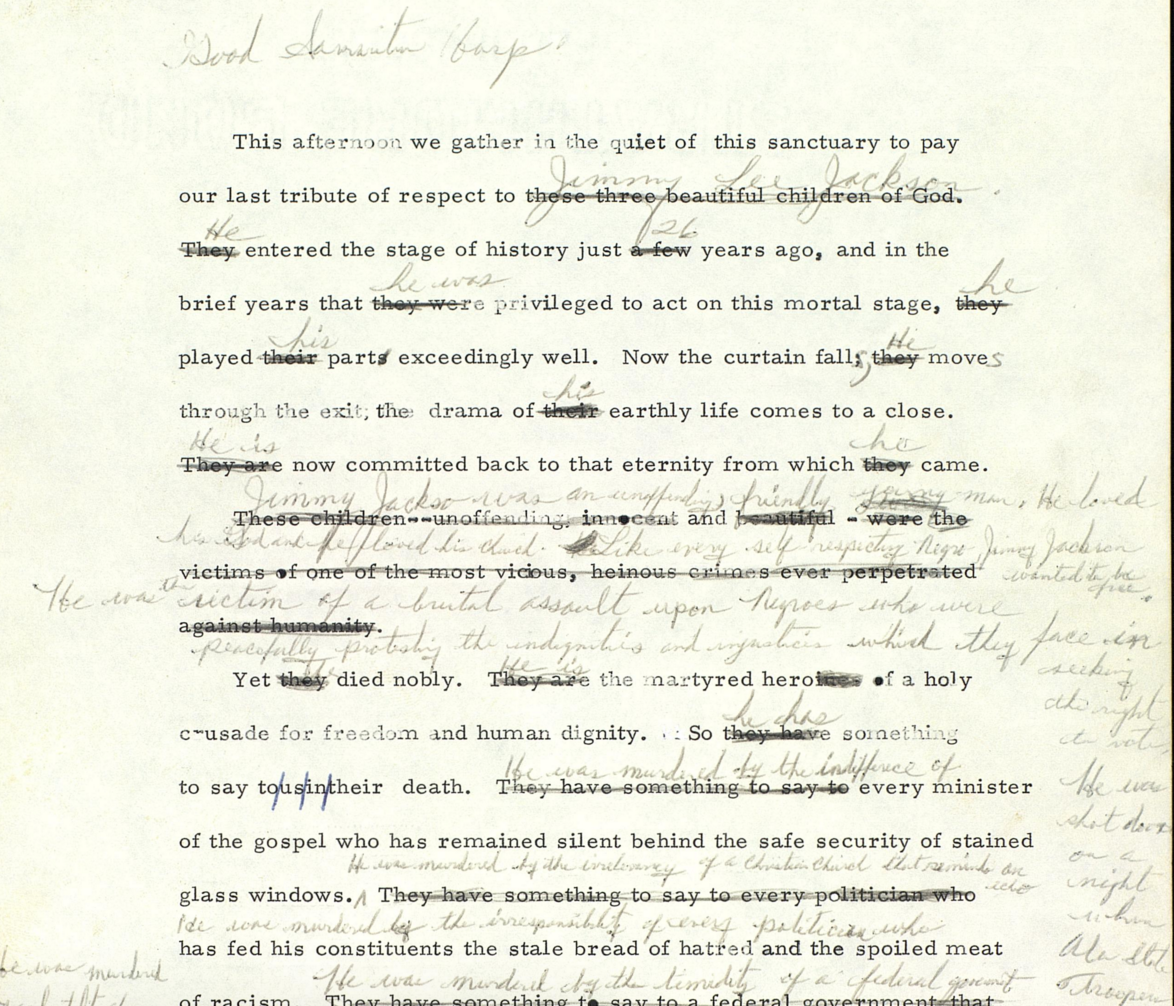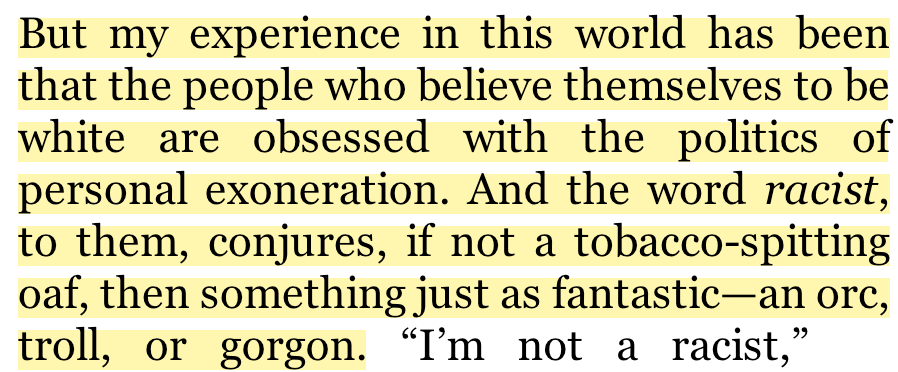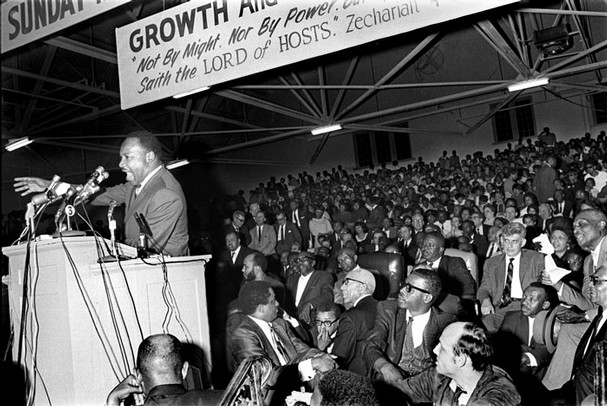Dr. MLK, Jr. School r
Where is this?
Dr. MLK, Jr. School r
Where is this?
Chris keeps surfacing nice examples of people using index card systems for pkm and learning. Here Martin Luther King jr.
It will be done by rejecting the racism, materialism and violence that has characterized Western civilization and especially by working toward a world of brotherhood, cooperation and peace.
course of action for mlk
persons who have the courage to put an end to suffering by willingly suffering themselves rather than inflict suffering upon others
strategy
Those denials echo the same ones that frustrated Dr. King in 1963 as he sat in a Birmingham jail cell and wrote, “Shallow understanding from people of good will is more frustrating than absolute misunderstanding from people of ill will.”
How do people of goodwill combat their shallow understandings? How might the affordances of the open web help promote greater understanding?
Racist is not a fixed category like “not racist,” which is steeped denial. Only racists say they are not racist. Only the racist lives by the heartbeat of denial.The antiracist lives by the opposite heartbeat, one that rarely and irregularly sounds in America — the heartbeat of confession.
The confession that comes the easiest for me is the admission of my profound blindspots and the ignorance that comes with privilege.
A new vocabulary emerged, allowing users to evade admissions of racism. It still holds fast after all these years. The vocabulary list includes these: law and order. War on drugs. Model minority. Reverse discrimination. Race-neutral. Welfare queen. Handout. Tough on crime. Personal responsibility. Black-on-black crime. Achievement gap. No excuses. Race card. Colorblind. Post-racial. Illegal immigrant. Obamacare. War on Cops. Blue Lives Matter. All Lives Matter. Entitlements. Voter fraud. Economic anxiety.
This vocabulary list comes with an associated set of skewed arguments that stand in the way of social progress on seemingly race neutral grounds. "Blue Lives Matter" doesn't explicitly posit that black lives don't matter. Instead, it sneakily changes the subject.
to go to jail togethe

http://www.ajc.com/news/john-lewis-tweet-and-mugshot-viral/aPRsKcdwB5T3tZk8MKrA6L/
we will be able to transform the jangling discords of our nation (Yes) into a beautiful symphony of brotherhood.
We cannot be satisfied as long as a Negro in Mississippi cannot vote and a Negro in New York believes he has nothing for which to vote.
Can we find hope in the recent rejection of racism by the state of Alabama? Surely King would notice the role of black women voters in rejecting a racist pedophile. 
There will be neither rest nor tranquility in America until the Negro is granted his citizenship rights. The whirlwinds of revolt will continue to shake the foundations of our nation until the bright day of justice emerges.
This line reads not as a threat, but as foreshadowing about the reckoning we must do as a country that has always struggled with its goal of being a melting pot.
It would be fatal for the nation to overlook the urgency of the moment.
Our nation dies one death after another for overlooking the urgency of inequity.

But we refuse to believe that the bank of justice is bankrupt.
This line is so important today because of the state of our justice department and because of the way bankers have descended on Washington to solidify the inequality in our country. The conservative response to our public's cry that we have a racist president is, "Look at the economy!" King saw the connection between the banks and justice.
In a sense we’ve come to our nation’s capital to cash a check.
The notion that King came to the capital to cash a check reminds me of Coates' call for reparations: https://www.theatlantic.com/magazine/archive/2014/06/the-case-for-reparations/361631/ Reparations are not just important for black people in America, but for all Americans to atone for the original sins of this country which is still in search of ways to achieve the greatness its founders envisioned.
But one hundred years later (All right), the Negro still is not free.
Important for us to think critically each year on this day about the ways this is still true. How have we not lived up to the spirit of the Emancipation Proclamation?
Considering that knowledge is one of the first steps toward civic engagement, shouldn’t we consider Twitter a valuable addition to our civic toolkit?
 These four steps are excerpted from MLK's Letter From a Birmingham Jail. It certainly seems that steps 1 and 2 require the use of the web and digital tools today.
These four steps are excerpted from MLK's Letter From a Birmingham Jail. It certainly seems that steps 1 and 2 require the use of the web and digital tools today.
First, I must confess that over the past few years I have been gravely disappointed with the white moderate. I have almost reached the regrettable conclusion that the Negro's great stumbling block in his stride toward freedom is not the White Citizen's Counciler or the Ku Klux Klanner, but the white moderate, who is more devoted to "order" than to justice; who prefers a negative peace which is the absence of tension to a positive peace which is the presence of justice; who constantly says: "I agree with you in the goal you seek, but I cannot agree with your methods of direct action"; who paternalistically believes he can set the timetable for another man's freedom; who lives by a mythical concept of time and who constantly advises the Negro to wait for a "more convenient season."
In this 1- minute clip http://www.tubechop.com/watch/7604174 from a discussion about the legacy of Dr King, Dr. Cornel West asks how we can avoid the sanitization, or the "Santa Claus-ification" of Dr. King. It occurs to me reading this letter that King's disappointment with white moderates, which he expresses here is rarely quoted, for example. By taking his work and words out of context to filter for only the uplifting content, we contribute to this "Santa Claus-ification."
This is an odd choice of text on a celebratory day like today, but I think it's a valuable use for a tool like hypothes.is.
It'd be an interesting exercise to expose the misinformation and hate tactics/rhetoric of the site through annotation...
King explicitly linked racism to economics in ways that remain sharply relevant.
Yes, racism is just another tool in the box for the haves to keep the have-nots from sharing in the incredible wealth generated by us all.
King observed in the “Letter From a Birmingham Jail”:

 In recent years there has been a growing critique of the US media for publishing mugshots of victims when black citizens are shot by police. In these instances, critics point out that the officers under investigation for misconduct are pictured in dress uniforms with American flags behind them while The innocent citizens are shown as criminals. Looking at King in a mugshot now, I know history will remember him as a formally dressed minister but I see the importance of his decision to dress as a common man and subject himself to arrest and jailing. Seeing him photographed this way might slow the judgements we make about the people our popular media frames in mugshots.
In recent years there has been a growing critique of the US media for publishing mugshots of victims when black citizens are shot by police. In these instances, critics point out that the officers under investigation for misconduct are pictured in dress uniforms with American flags behind them while The innocent citizens are shown as criminals. Looking at King in a mugshot now, I know history will remember him as a formally dressed minister but I see the importance of his decision to dress as a common man and subject himself to arrest and jailing. Seeing him photographed this way might slow the judgements we make about the people our popular media frames in mugshots.
In the last speech of his life
https://www.youtube.com/watch?v=4WZbxYGy3As
A powerful excerpt from the last speech of his life.
“A state trooper pointed the gun, but he did not act alone,” King said. “He was murdered by the brutality of every sheriff who practices lawlessness in the name of law. He was murdered by the irresponsibility of every politician, from governors on down, who has fed his constituents the stale bread of hatred and the spoiled meat of racism.”
A quick search on Jimmie Lee Jackson taught me that King revised the eulogy he used for the four girls who died in the bombing of the 16th St Baptist Church in order to speak about Jackson's killing. Obviously a big difference resulting from that revision would be lines like the ones quoted here that denounce the police and the political system. Back to sanitizing, we're more comfortable as a culture in denouncing racist terrorism like the bombing of the church but we struggle to see systemic racism in our government agencies.

While a sanitized image of King as a Southern civil rights crusader has been enshrined in popular memory, his dream of ending American militarism has proved more difficult to accept.
To what degree have we sanitized King to make his image palatable to white America? One way we have, in my mind, is by canonizing his "I Have a Dream" speech with its positive vision while focusing less on the critiques of the white church he levels in "Letter From a Birmingham Jail."
Maybe these myths serve to support this sanitized view, which works in service of "the politics of personal exoneration" that Coates writes about in Between the World and Me. 
King’s speech to Memphis sanitation workers a month before his 1968 assassination, on the economic disparities between blacks and whites, is a better measure of his mature thought. His words could have been written in the aftermath of the 2008 financial crisis: “When there is vast unemployment and underemployment in the black community, they call it a social problem. When there is vast unemployment and underemployment in the white community, they call it a depression.”
 The Huffington Post published a good article in 2014 about why King was in Memphis in the first place. That text paints a clearer, more specific context by describing the mistreatment of black sanitation workers.
The Huffington Post published a good article in 2014 about why King was in Memphis in the first place. That text paints a clearer, more specific context by describing the mistreatment of black sanitation workers.